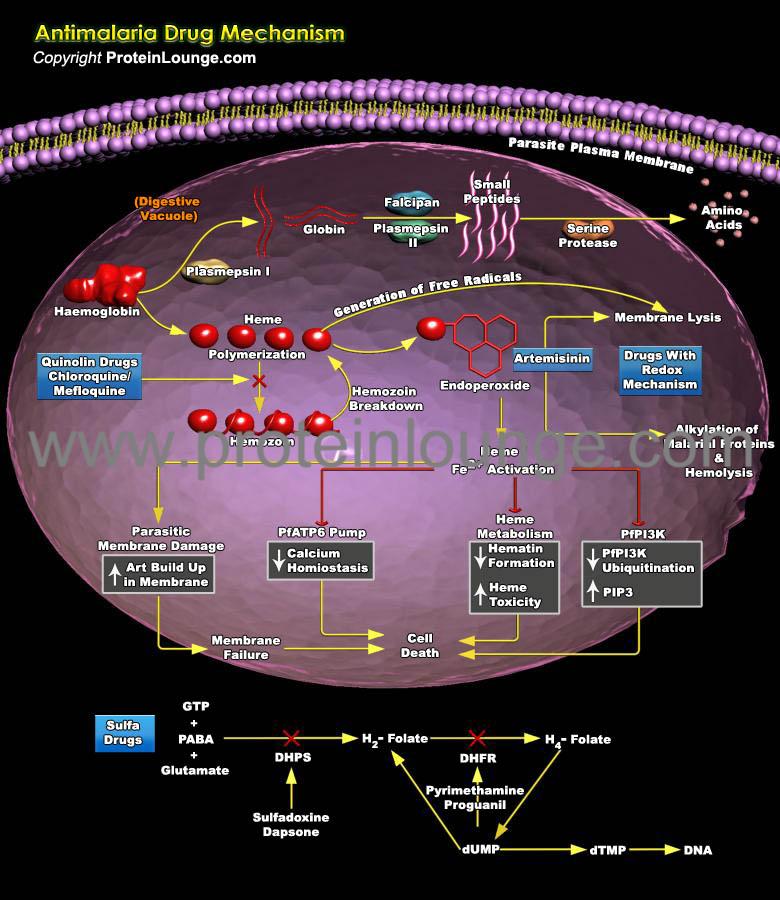Pathways
Antimalaria Drug Mechanism

Description:
The control of malaria largely depends on drug therapies, and, to a lesser extent, prophylaxis. Most of the antimalarial drugs available currently have been in use for decades, but their use is now severely limited by the emergence and spread of drug resistance, primarily in Plasmodium falciparum, the malaria parasite that causes severe forms of the disease and most of the disease burden. Drugs in use today target different stages of the malaria life cycle, albeit the majority of them act on the intra-erythrocytic phases...
References:
-
Antimalarial Drug Resistance: Literature Review and Activities and Findings of the ICEMR Network.
Am J Trop Med Hyg. 2015 Sep;93(3 Suppl):57-68. doi: 10.4269/ajtmh.15-0007. Epub 2015 Aug 10. Review. -
The past, present and future of antifolates in the treatment of Plasmodium falciparum infection.
J Antimicrob Chemother. 2006 Jun;57(6):1043-54. -
Anti-folate drug resistance in Africa: meta-analysis of reported dihydrofolate reductase (dhfr) and dihydropteroate synthase (dhps) mutant genotype frequencies in African Plasmodium falciparum parasite populations.
Malar J. 2010 Aug 30;9:247. -
Falcipains and other cysteine proteases of malaria parasites.
Adv Exp Med Biol. 2011;712:30-48.
You can view details of this pathway by subscribing:
Copyright © Protein Lounge Inc.
Terms & Conditions

